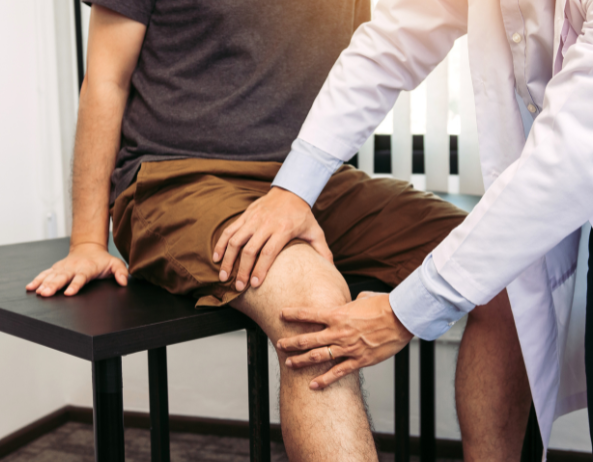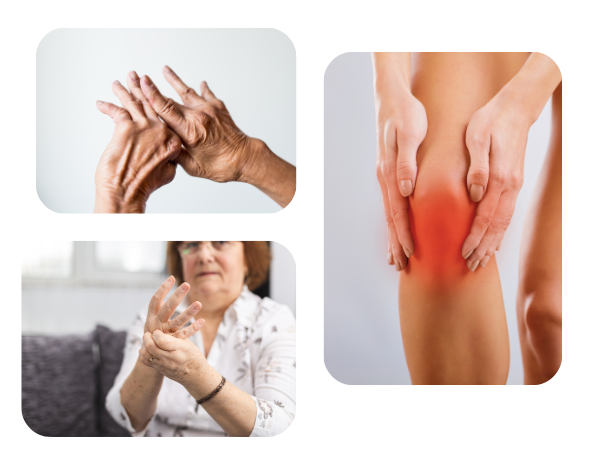Menu
- AyurVAID Pharmacy
Arthritis includes several rheumatic diseases that cause inflammation, stiffness and tenderness in one or more joints. The causes may be wear and tear, infection or injury. Some arthritis may also affect your skin and internal organs as they progress. There are more than 100 types of arthritis, but the more commonly seen are Osteoarthritis, Rheumatoid arthritis, Gout and Psoriatic arthritis. Arthritis, is called Sandhi Gata Vata in Ayurveda and is characterised by the localization of Vata entity in the joints (Sandhi). This occurs as a result of diminished digestive fire (Agni) culminating in the accumulation of metabolic toxins(Ama). Ayurveda treatment for arthritis aims to address these imbalances and manage symptoms effectively. Arthritis or degenerative joint disease are terms used to describe the loss of cartilage in the affected joints.


At AyurVAID, Arthritis treatment focuses on the evaluation of the root cause responsible for Arthritis and customised Panchakarma treatments. This ensures lasting relief with long-term remission and prevents further disease progression. The precision-based herbal medicines, personalized panchakarma protocols, diet, and lifestyle consultations altogether bring pain relief and improved quality of life for the patients. The symptoms are treated with Ayurveda protocols that effectively relieve the symptoms without heavy steroids or painkillers, with non-surgical interventions.

In chronic cases:

Bengaluru – Domlur Bengaluru – Aster CMI, Hebbal Bengaluru – HRBR Layout Bengaluru – Sri Shankara, Basavangudi Bengaluru – Bannerghatta Road Bengaluru – ArekereDelhi – New DelhiKochi – Kadavanthara Uttarakhand-Kalmatia, AlmoraChennai – Greams Road Chennai – Vanagaram Chennai – Kotturpuram Hyderabad – Somajiguda
Ayurveda Parasurgery Autoimmune Disorders Blood Disorders Cardiology Dermatology Endocrinology Ear-Nose Throat-Mouth Elder-Care Gastrointestinal Gynaecology Integrative Oncology Infectious-Diseases Liver-Hepato-Biliary-Care Mental Health and De-addiction Male-Reproductive-Disorders Nephrology Neurological-Disorders Orthopaedic Disorders Ophthalmology Obstetrics-Integrative Preventive-Health-Wellbeing Pulmonology Pediatric-Development-Disorder Sleep-Disorders
Any use of this site constitutes your agreement to the Terms and Conditions, Privacy Policy and Cancellation and Refund Policy
©2025 Apollo AyurVAID Hospitals. All rights reserved.
Popular Searches: DiseasesTreatmentsDoctorsHospitalsWhole person careRefer a patientInsurance